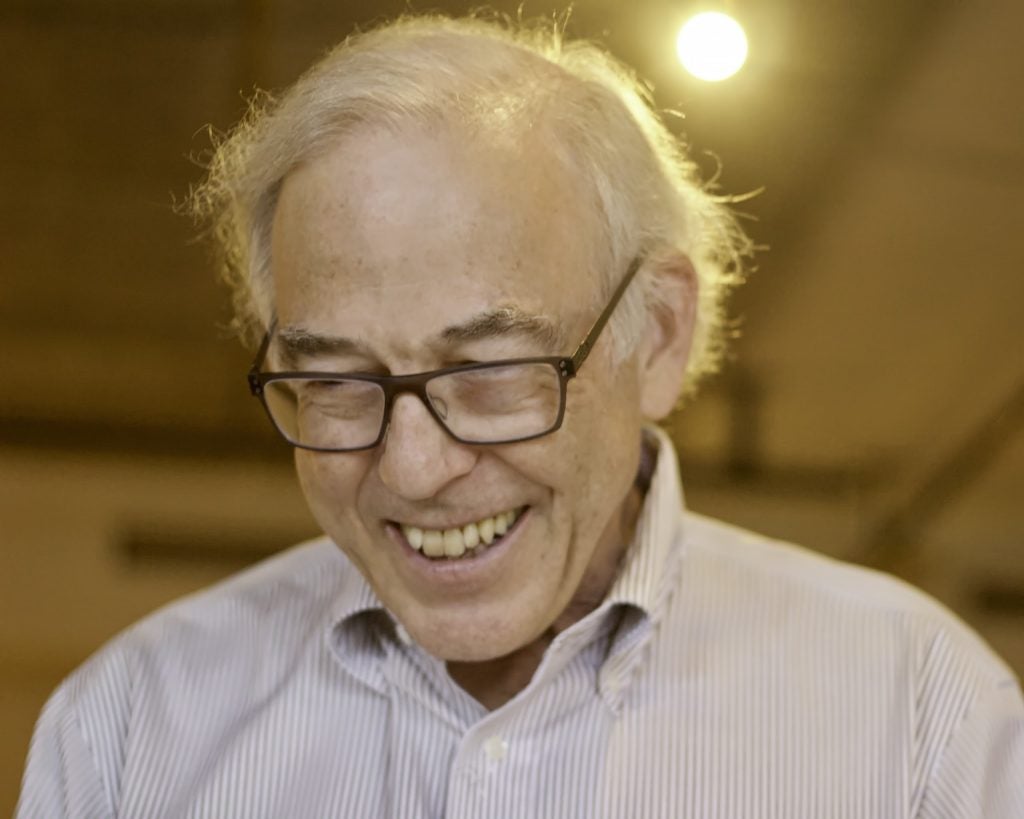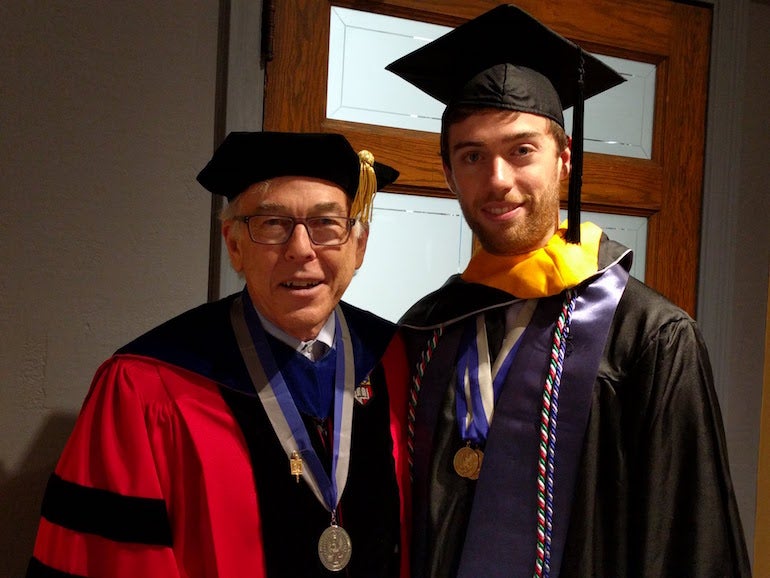Remembering Joe Serene
It is with sadness that we share the news of the death of Joseph W. Serene.
Professor Serene joined the Georgetown faculty as Professor and Chair of the Department of Physics in 1993. Fostering a culture of integrity, collegiality, and inclusiveness, as well as intellectual rigor and thoughtful reflection, he led the department in revitalizing its undergraduate curriculum, stimulating scholarly activity, and restarting the graduate program. Subsequently, Professor Serene served in a variety of leadership roles across campus, including Dean of the Graduate School of Arts and Sciences (1998-2001), member of the Committee for Transitional Administration of the Georgetown Medical Center (2000-2002), and Interim Director of Music and Dance (2005-2006). In 2001, President Leo O’Donovan awarded him the President’s Medal in recognition of his exemplary service to the university. In 2004, Professor Serene was named the inaugural holder of the Davis Family Distinguished Professorship.
Professor Serene left Georgetown in 2006 to become the Treasurer/Publisher of the American Physical Society, where his responsibilities included an annual operating budget of $50M, an endowment of $130M, and subscription, Open Access, and copyright policies of eleven journals publishing over 17,000 peer-reviewed papers per year. He was also a founder and the first Treasurer of CHORUS, a non-profit organization facilitating public access to published research.
In 2014, he returned to teach and conduct research as the Davis Family Distinguished Professor Emeritus. As a teacher and research advisor, Professor Serene cultivated curiosity, encouraged critical thinking and had a positive impact on many Georgetown students.
Throughout his years at Georgetown, Professor Serene was a passionate advocate for the integral role of the natural sciences in the liberal arts curriculum. In 2015, he was appointed Special Advisor to the Provost for Expanding Science in the Core. In this role, he helped craft the “Science for All” requirement, based on the conviction that as liberally educated, ethically responsible citizens and stewards of the planet, all Georgetown students should engage with scientific concepts and modes of inquiry during their undergraduate years.
Earlier in his career, Professor Serene held faculty positions at Stony Brook University and Yale University, and he also worked at the National Science Foundation and the Naval Research Laboratory. He was a theoretical physicist who studied quantum liquids and strongly correlated electronic materials, using analytical theory and computation to better understand the normal and superfluid/superconducting states of these materials. He and his collaborators developed the strong-coupling theory and quasiclassical method for superfluid 3He, introduced the first method for numerical analytic continuation of Matsubara-frequency Green’s functions, and performed some of the first massively parallel calculations for quantum many-body systems. He was a Fellow of the American Physical Society and the American Association for the Advancement of Science.
A talented musician, Professor Serene performed regularly with the Washington Revels, an arts community that he was a long-time member of and that was very dear to him. In addition, many Georgetown colleagues will remember his operatic voice ringing out over Commencement conclusions, as he led the singing of Georgetown’s Alma Mater.
It was Professor Serene’s wish that any memorial tributes be made in the form of donations to the Washington Revels or to the Georgetown physics department . In coordination with his sons, Peter Serene (COL ‘06) and Stephen Serene, an in-person memorial will be held later this year.


